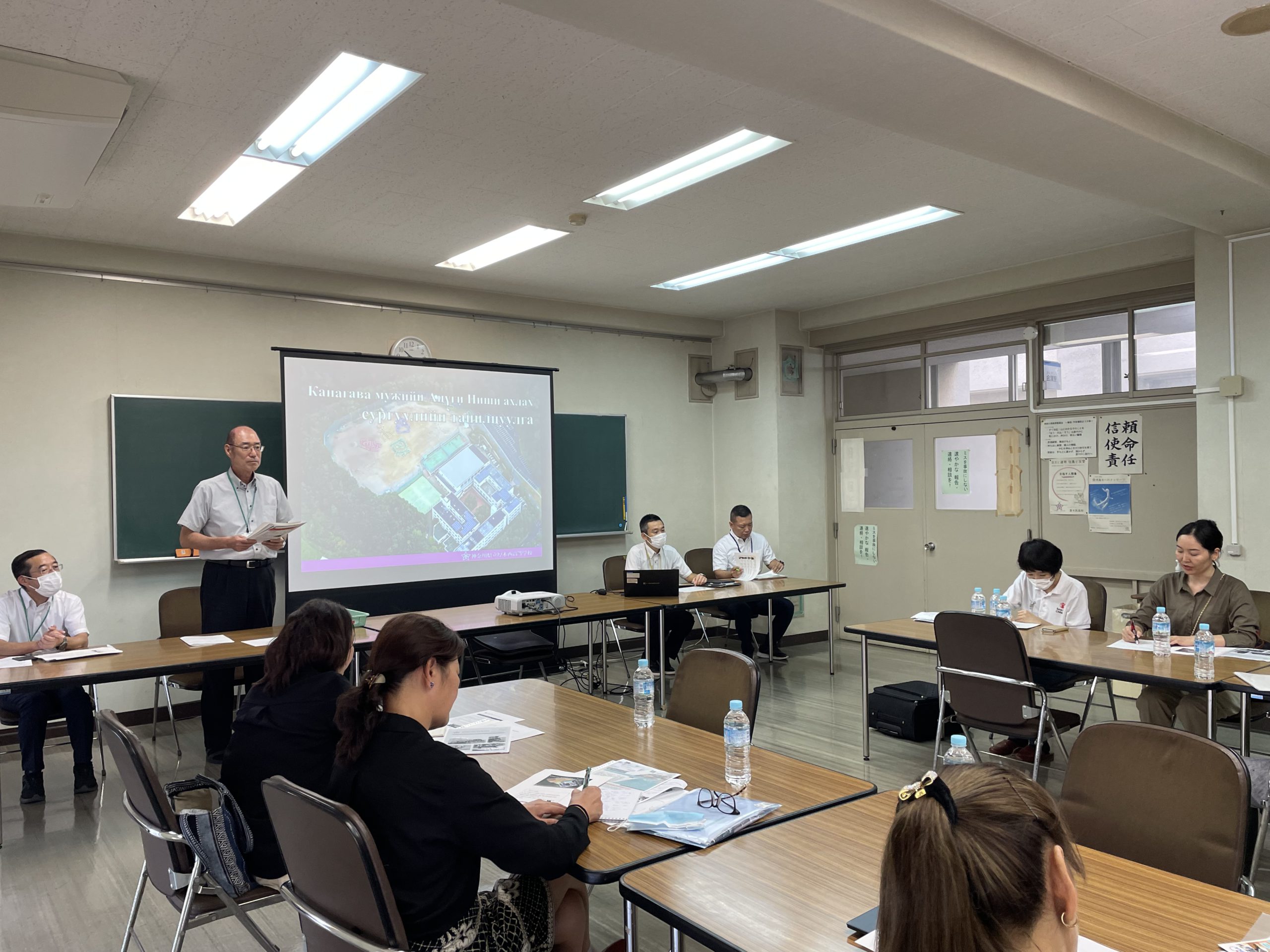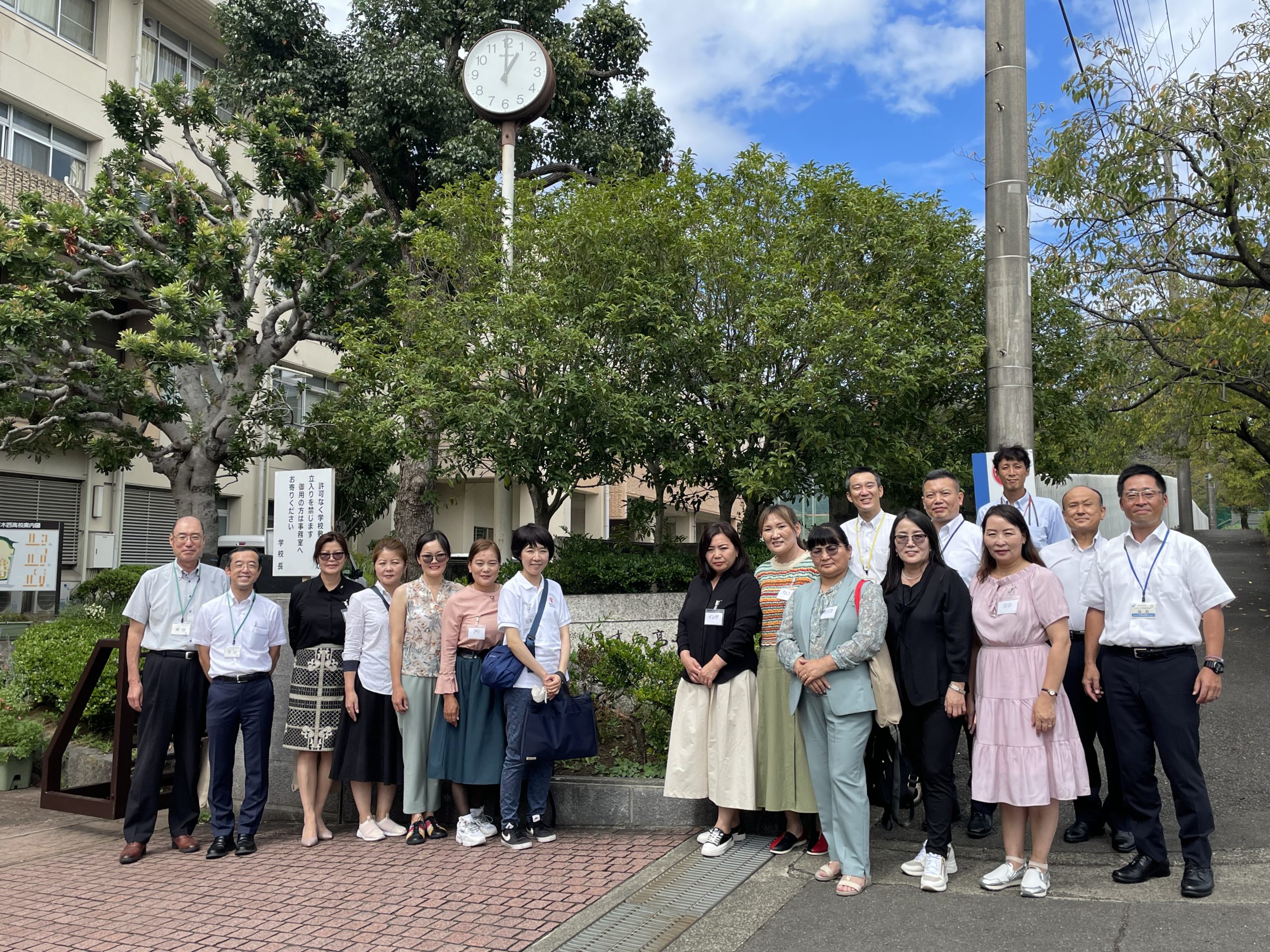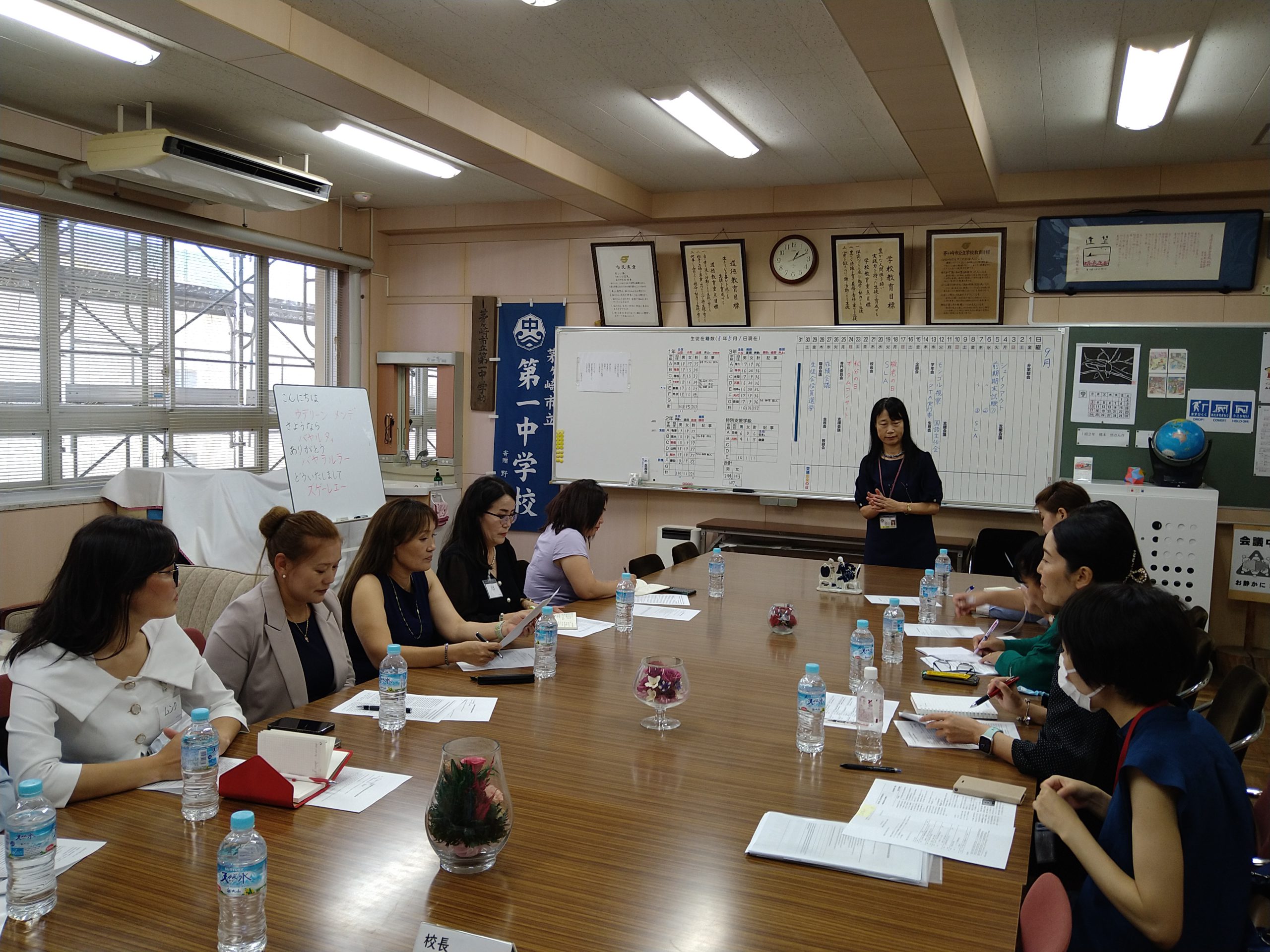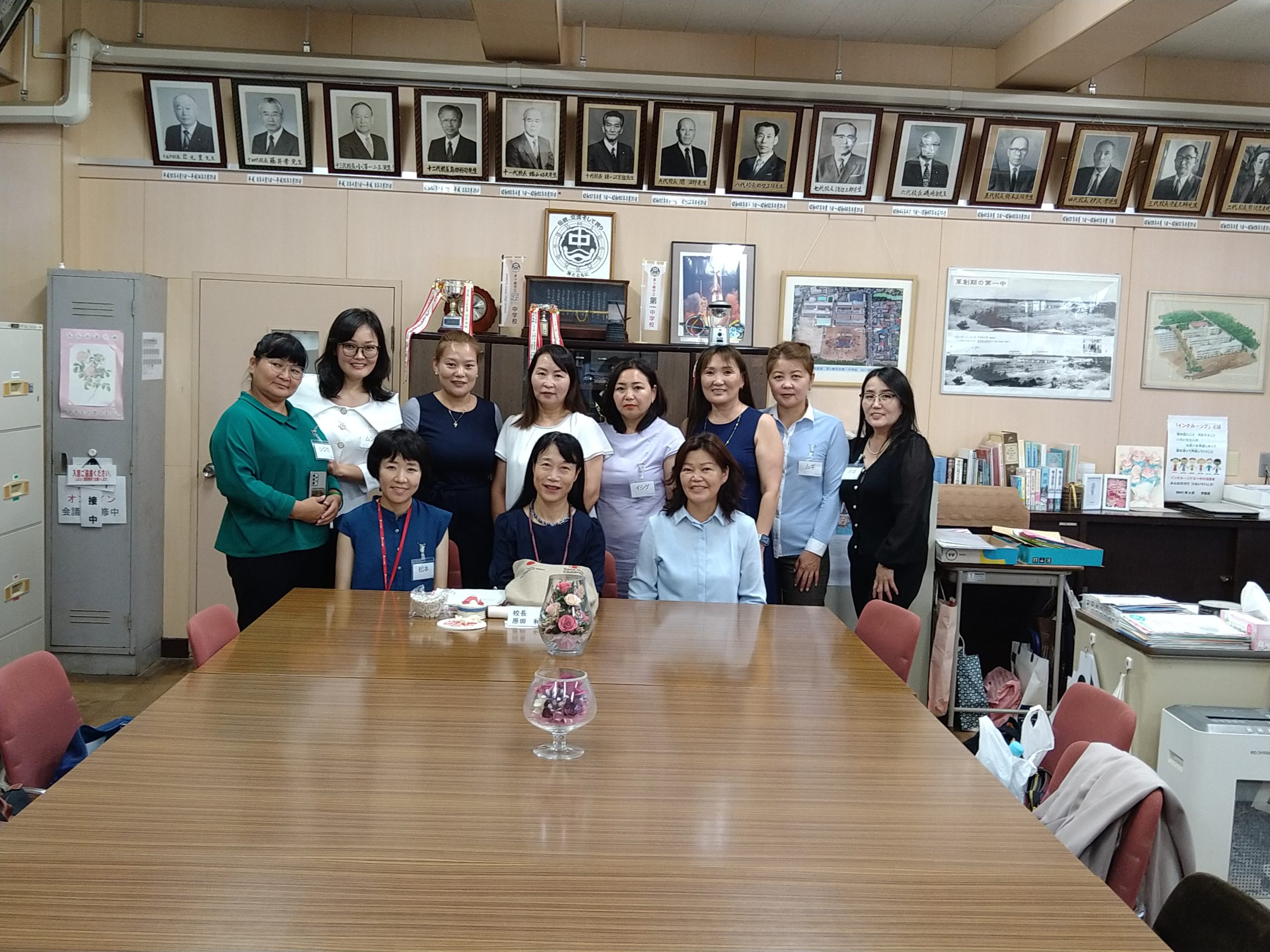From September 9th to 17th, 2023, nine people, comprising officials from the Ministry of Education and Science in Mongolia, the General Authority for Education, and Departments of Education and Science, and five public school teachers, visited Japan together with a member of Save the Children Japan (SCJ) stationed in Mongolia, for a study tour.
EDU-Port Japan cooperated with the SCJ in organizing this study tour as part of the School Visit program which supports visits to schools in Japan by overseas educators, and coordinated some of school visits and accompanied the group.
SCJ has been engaged in an inclusive education promotion project in Mongolia since 2018. Until 2021 it promoted inclusive education in primary schools with the aim of ensuring that all children receive a quality education, regardless of disabilities, poverty or language differences, through teacher training, improvement of the learning environment and awareness-raising activities. For three years starting in 2021, it is expanding the scope of this initiative to include lower secondary schools and is providing training for teachers and parents to ensure that children with special educational needs receive academic and psychological support as they move on to lower secondary school. This study tour was carried out as one of the activities of this “Promoting Inclusiveness in Primary and Lower-Secondary Education in Mongolia” project (2021-2024).
On September 11th, the group visited Atsugi-Nishi Senior High School which has been promoting inclusive education practices in Kanagawa Prefecture since 2016. First, the principal Yutaka Sawada gave an overview of the school and described its efforts to promote inclusive education practices, and then the teacher in charge explained how inclusive education is implemented at the school. After that, the group observed lessons and was shown around the school, including the resource room. During a Q&A session with members of the Inclusive Education Promotion Division of Kanagawa Prefectural Board of Education, the visitors asked many questions regarding team teaching, teacher training and building mutual understanding with parents.
On September 12th, the group visited Daiichi Junior High School in Chigasaki City. The school has been engaged in special needs education in Chigasaki since 1964. For four years from 2015 to 2018, the school was designated as a “Classroom for All” model school (*1) by Kanagawa Prefectural Board of Education, and the entire school is involved in promoting inclusive education. After hearing this explanation from the principal Kazuko Harada, the group was shown around the school where they observed lessons and visited the “Hotto Room”(*2). In the Q&A session that followed, the group asked a variety of questions about the school’s support system, teacher training, student assessment and career options after graduation.
In Mongolia, the General Law on Education and the Law on Preschool and General Education were amended in July this year to provide for a number of provisions related to inclusive education. The visitors were enthusiastic about using lessons learned from Japanese schools for future improvements in the Mongolian education system and schools. Comments after the visit included, “I learned a lot from the efforts of both schools to achieve inclusive education in regular classes by incorporating universal design into the learning environment,” “I got a lot of ideas that can be implemented in Mongolian schools” and “I would like to put what I have learned into practice in the Mongolian environment and spread such practices.”
(*1) Practical studies conducted by establishing a Classroom for All in model schools to promote the “creation of a diverse and flexible support system” that supports all children at the school, regardless of whether they are enrolled in a regular class or a special needs class, in pursuit of learning together in the same place whenever possible.
(*2) Classroom for All is used for individual teaching of students who need support in their studies, and as a place where students who are unable to adapt to groups or who do not attend school can feel safe.











